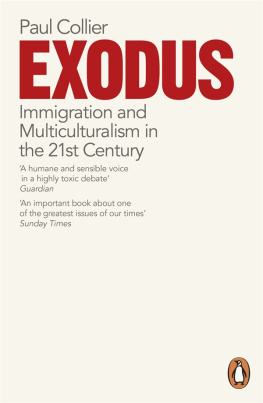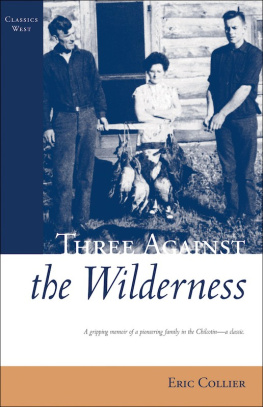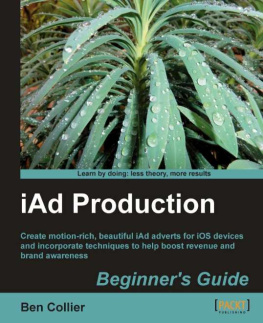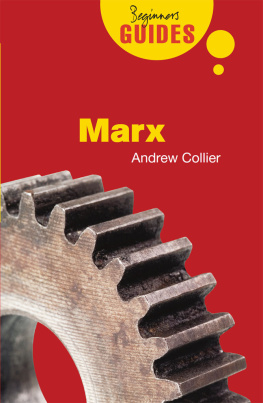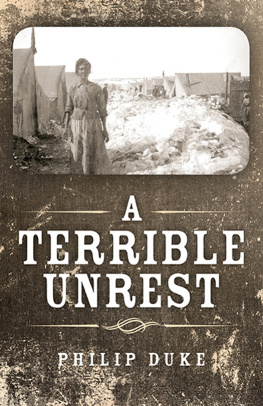BY THE SAME AUTHOR
The Plundered Planet
The Botham Billion
References
Acemoglu, D., Johnson, S., and Robinson, J. A. 2001. The Colonial Origins of Comparative Development: An Empirical Investigation. American Economic Review 91(5), 13691401.
Acemoglu, D., and Robinson, J. A. 2012. Why Nations Fail: The Origins of Power, Prosperity, and Poverty. New York: Crown Business.
Agesa, R. U., and Kim, S. 2001. Rural to Urban Migration as a Household Decision. Review of Development Economics 5(1), 6075.
Aker, J. C., Clemens, M. A., and Ksoll, C. 2011. Mobiles and Mobility: The Effect of Mobile Phones on Migration in Niger. Proceedings of the CSAE Annual Conference, Oxford (March 2012).
Akerlof, G. A., and Kranton, R. E. 2011. Identity Economics: How Our Identities Shape Our Work, Wages and Well-Being. Princeton, NJ: Princeton University Press.
Alesina, A., Baqir, R., and Easterly, W. 1999. Public Goods and Ethnic Divisions. Quarterly Journal of Economics 114(4), 12431284.
Alesina, A., Glaeser, E., and Sacerdote, B. 2001. Why Doesnt the US Have a European-Style Welfare State? Harvard Institute of Economic Research Working Papers 1933.
Alesina, A., and Spolaore, E. 1997. On the Number and Size of Nations. Quarterly Journal of Economics 112(4), 10271056.
Andersen, T. 2012. Migration, Redistribution and the Universal Welfare Model, IZA Discussion Paper No. 6665.
Batista, C., and Vicente, P. C. 2011a. Do Migrants Improve Governance at Home? Evidence from a Voting Experiment. World Bank Economic Review 25(1), 77104.
Batista, C., and Vicente, P. C. 2011b. Testing the Brain Gain Hypothesis: Micro Evidence from Cape Verde. Journal of Development Economics 97(1), 3245.
Beatty, A., and Pritchett, L. 2012. From Schooling Goals to Learning Goals. CDC Policy Paper 012, September.
Beegle, K., De Weerdt, J., and Dercon, S. 2011. Migration and Economic Mobility in Tanzania: Evidence from a Tracking Survey. Review of Economics and Statistics 93(3), 10101033.
Beine, M., Docquier, F., and Ozden, C. 2011. Diasporas. Journal of Development Economics 95(1), 3041.
Beine, M., Docquier, F., and Schiff, M. Forthcoming. International Migration, Transfers of Norms and Home Country Fertility. Canadian Journal of Economics.
Beine, M., and Sekkat, K. 2011. Skilled Migration and the Transfer of Institutional Norms. Mimeo.
Belich, J. 2009. Replenishing the Earth: The Settler Revolution and the Rise of the Anglo-World, 17831939. New York: Oxford University Press.
Benabou, R., and Tirole, J. 2011. Identity, Morals and Taboos: Beliefs as Assets. Quarterly Journal of Economics 126(2), 805855.
Besley, T., and Ghatak, M. 2003. Incentives, Choice and Accountability in the Provision of Public Services. Oxford Review of Economic Policy 19(2), 235249.
Besley, T., Montalvo, J. G., and Reynal-Querol, M. 2011. Do Educated Leaders Matter? Economic Journal 121(554), F205F208.
Besley, T., and Persson, T. 2011. Fragile States and Development Policy. Journal of the European Economic Association 9(3), 371398.
Besley, T., and Reynal-Querol. M. 2012a. The Legacy of Historical Conflict: Evidence from Africa. STICERDEconomic Organisation and Public Policy Discussion Papers Series 036, London School of Economics.
Besley, T. J., and Reynal-Querol, M. 2012b. The Legacy of Historical Conflict: Evidence from Africa. CEPR Discussion Papers 8850.
Borjas, G. J. 1989. Economic Theory and International Migration. International Migration Review 23, 457485.
Candelo-Londoo, N., Croson, R. T. A., and Li, X. 2011. Social Exclusion and Identity: A Field Experiment with Hispanic Immigrants. Mimeo, University of Texas.
Card, D. 2005. Is the New Immigration Really So Bad? Economic Journal 115(507), F300F323.
Carrington, W. J., Detragiache, E., and Vishwanath, T. 1996. Migration with Endogenous Moving Costs. American Economic Review 86(4), 909930.
Chauvet, L., and Mercier, M. 2012. Do Return Migrants Transfer Norms to Their Origin Country? Evidence from Mali. DIAL and Paris School of Economics.
Clemens, M. A. 2010. The Roots of Global Wage Gaps: Evidence from Randomized Processing of US Visas. Working Paper 212, Center for Global Development.
Clemens, M. A. 2011. Economics and Emigration: Trillion-Dollar Bills on the Sidewalk? Journal of Economic Perspectives 25(3), 83106.
Clemens, M. A., Montenegro, C., and Pritchett, L. 2009. The Place Premium: Wage Differences for Identical Workers across the US Border. Working Paper Series rwp09-004, John F. Kennedy School of Government, Harvard University.
Clemens, M. A., Radelet, S., Bhavnani, R. R., and Bazzi, S. 2012. Counting Chickens When They Hatch: Timing and the Effects of Aid on Growth. Economic Journal 122(561), 590617.
Corden, W. M. 2003. 40 Million Aussies? Inaugural Richard Snape Lecture, Productivity Commission, Melbourne. Available at http://papers.ssrn.com/sol3/papers.cfm?abstract_id=496822.
Cox, D. C., and Jimenez, E. 1992. Social Security and Private Transfers in Developing Countries: The Case of Peru. World Bank Economic Review 6(1), 155169.
Cunliffe, B. 2012. Britain Begins. New York: Oxford University Press.
de la Croix, D., and Docquier, F. 2012. Do Brain Drain and Poverty Result from Coordination Failures? Journal of Economic Growth 17(1), 126.
Deaton, A., Fortson, J., and Tortora, R. 2009. Life (Evaluation), HIV/AIDS, and Death in Africa. NBER Working Paper 14637.
Dedieu, J. P., Chauvet, L., Gubert, F., and Mespl-Somps, S. 2012. Political Transnationalism: The Case of the Senegalese Presidential Elections in France and New York. Mimeo, DIAL.
Dercon, S., Krishnan, P., and Krutikova, S. 2013. Migration, Well-Being and Risk-Sharing. Mimeo, Centre for the Study of African Economies, University of Oxford.
Dijksterhuis, A. 2005. Why We Are Social Animals. In Perspectives on Imitation: From Neuroscience to Social Science, ed. Susan Hurley and Nick Carter, vol. 2. Cambridge, MA: MIT Press.
Docquier, F., Lodigiani, E., Rapoport, H., and Schiff, M. 2011. Emigration and Democracy. Policy Research Working Paper Series 5557, The World Bank.
Docquier, F., Lohest, O., and Marfouk, A. 2007. Brain Drain in Developing Countries. World Bank Economic Review 21(2), 193218.
Docquier, F., Ozden, C., and Peri, G. 2010. The Wage Effects of Immigration and Emigration. NBER Working Paper 16646.
Docquier, F., and Rapoport, H. 2012. Globalization, Brain Drain and Development. Journal of Economic Literature 50(3), 681730.
Docquier, F., Rapoport, H., and Salomone, S. 2012. Remittances, Migrants Education and Immigration Policy: Theory and Evidence from Bilateral Data. Regional Science and Urban Economics 42(5), 817828.
Dunbar, R. I. M. 1992. Neocortex Size as a Constraint on Group Size in Primates. Journal of Human Evolution 22(6), 469493.
Dustmann, C., Casanova, M., Fertig, M., Preston, I., and Schmidt, C. M. 2003. The Impact of EU Enlargement on Migration Flows. Online Report 25/03, Home Office, London. Available at www.homeoffice.gov.uk/rds/pdfs2/rdsolr2503.pdf.
Dustmann, C., Frattini, T., and Preston, I. P. 2012. The Effect of Immigration along the Distribution of Wages. Review of Economic Studies, doi: 10.1093/restud/rds019.
Ferguson, N. 2012. The Rule of Law and Its Enemies: The Human Hive. BBC Reith Lecture 2012, London School of Economics and Political Science, June 7. Transcript available at http://www2.lse.ac.uk/publicEvents/pdf/2012_ST/20120607-Niall-Ferguson-Transcript.pdf.

